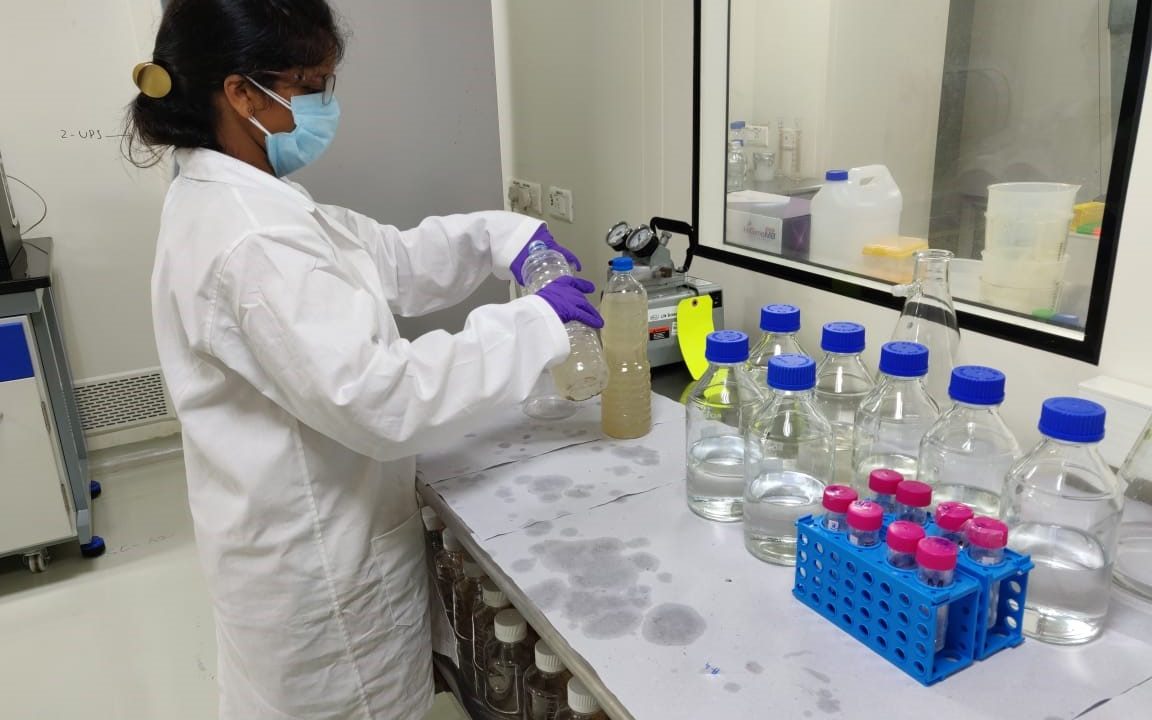Various studies have demonstrated that faeces can harbour SARS-CoV-2. Centre of Scientific and Industrial Research (CSIR) institutions Centre for Cellular and Molecular Biology (CCMB) and Indian Institute of Chemical Technology (IICT) in a joint study have harvested the sewage samples to estimate the number of potentially infected individuals in the city of Hyderabad.
The novel coronavirus (SARS-CoV-2) in sewage samples is found to be non-infectious, thus it can be easily taken for epidemiological studies. Estimating the spread is very important in identifying the affected areas and controlling the pandemic. Since an infected person sheds viral material in faecal samples for up to ~35 days, these studies will provide an overall estimate of the situation in a window of one month.
To carry out the studies of sewage samples from major Sewage Treatment Plants (STPs) were processed for detecting the presence of SARS-CoV-2 viral RNA. While viral RNA is detectable in the inlet samples, the outlet (after treatment) samples of STP were largely clean (free from viral RNA) in this regard, indicating efficient treatment practices at STP.
Of the 1800 million litres water used daily in Hyderabad, 40% is processed at different STPs. This study covers about 80% of the STPs in Hyderabad revealed that there are around 2 lakh people who are shedding viral materials. Since only 40% of the Hyderabad sewage reaches STPs, this data can be used to extrapolate the overall number of potentially infected people, which turned out to be approximately 6lakhs, that is, around 6% of the city’s population. The number includes symptomatic, asymptomatic, and also recently recovered individuals in a time window of about 35 days. A conservative estimate of the number of active cases who are shedding the virus may be around 2lakhs.
“Our finding clearly indicates that a large proportion of the affected individuals are asymptomatic and did not need hospitalization. This is also in agreement with the observation that hospitalization rush or mortality is way lower than otherwise expected with such a large infection rate at a given time. It explains why our healthcare system has been able to handle reasonably well the situation during the pandemic. Such studies if carried out in coordination with civic bodies to identify the hotspots in the city and monitor the dynamics of the infection rate can assist the system in taking necessary measures”, explained, Dr Rakesh Mishra, Director, CCMB.
The findings are posted on the preprint server, MedRxiv, which is yet to be peer-reviewed. All the experiments were conducted at the CSIR-CCMB COVID-19 testing facility and the teams included Hemalatha Manupati, Kopperi Harishankar and S.Venkata Mohan from CSIR-IICT and Uday Kiran, C.G. Gokulan, Santosh Kumar Kuncha and Rakesh K Mishra from CSIR-CCMB. (ISW)



